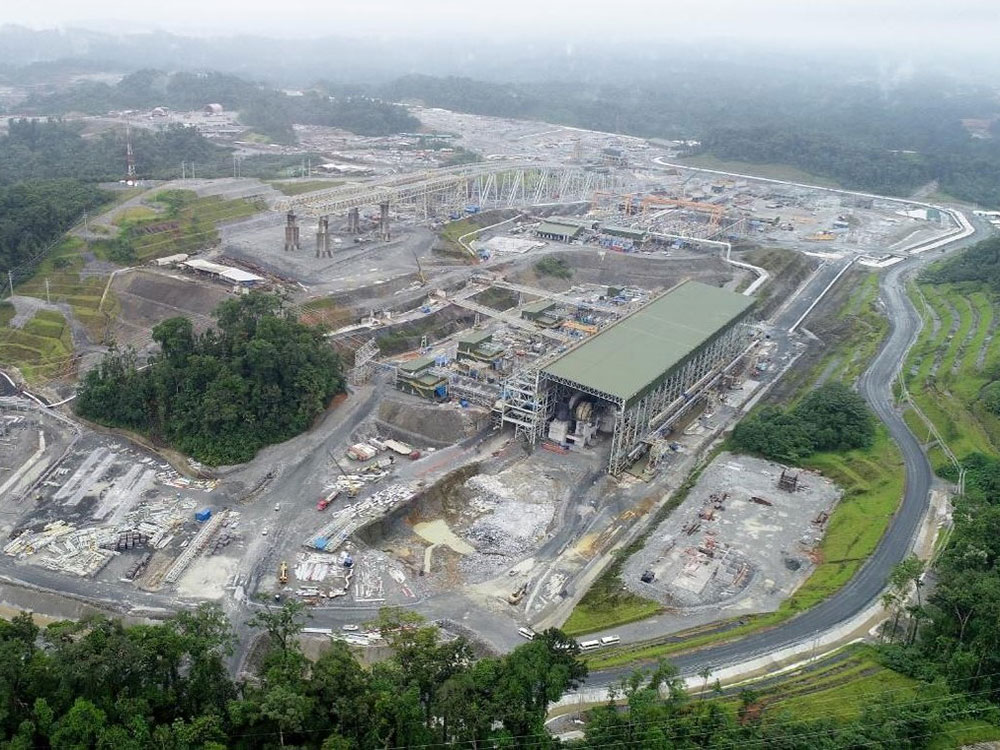First came weeks of nationwide protests. Then the murder of two activists. Then the Supreme Court stepped in. Finally, the government of Panama declared last week that it would shut down the giant foreign-owned copper mine that sparked all the uproar.
It seems like a win for the environment — but it’s also a bad omen for the world’s transition to renewable energy.
The trouble started in late October, when First Quantum Minerals, a Canadian company, signed a deal with Panama’s government allowing it to operate a colossal open-pit copper mine on the jungled Atlantic coast for at least the next 20 years. The Cobre Panama mine is a big deal for the small Central American nation: last year, it produced around 86,000 tons of copper, generating about five per cent of Panama’s total GDP and employment for one in every 50 of its citizens.
But environmentalists fear that the mine, which occupies nearly 6,000 acres of biodiverse rainforest, could worsen deforestation, contaminate drinking water and harm endangered local wildlife as well as the many migratory birds that pass through the area. There were also accusations that the deal involved government corruption.
The deal ignited weeks of protests with students, labour and Indigenous groups blocking major roads and even blockading the mine’s port with small boats. Schools were closed, businesses disrupted. The action turned deadly in early November, when a 77-year-old American-Panamanian man shot dead two protesters blocking traffic on a highway.
Soon after, Panama’s Supreme Court ruled that the contract with First Quantum was unconstitutional. The government declared it will not only shut down the Cobre Panama mine but will reject any new mining projects.
Score one for the environment? Yes and no. Thing is, copper is one of several metals that are absolutely crucial for the transition to a world run on renewable energy. Copper is a key component in electric car batteries, solar panels and wind turbines, as well as the vast power grids that carry electricity from wherever it is generated to wherever it is consumed.
Building enough of that renewable hardware to wean us off fossil fuels will require hundreds of millions of tonnes of copper in the coming years — perhaps more than has so far been consumed in all of human history.
That copper — not to mention the titanic quantities of lithium, cobalt, nickel and other metals critical to the energy transition — has to come from somewhere. The trouble is that no one wants that somewhere to be their own backyard. Least of all developing countries like Panama that have a long and ugly history of being plundered for the benefit of rich countries to the north.
Who can blame them? Mines are ugly, destructive and polluting. We can reduce the amount of mining required by boosting recycling and consuming less, but we’re still going to need a lot of new metal.
The intensifying global hunt for all that metal is running into an intensifying backlash, and not just in Panama. As the energy transition gathers speed, protests, lawsuits and political campaigns are being waged against mines from Ontario to Nevada to Serbia to Chile to Indonesia and beyond.
All of which is completely understandable, and often justifiable. But it creates a paradoxical problem: widespread opposition to local environmental harms could have the unintended consequence of worsening the global environmental harm of climate change, by slowing the switch to renewables.
Shortages of metals and other materials “could derail or delay the energy transition,” the International Monetary Fund warned in a recent report.
Simply put, if there isn’t enough copper available to build the millions of electric cars, wind turbines, solar panels and electrical infrastructure we need, that stuff won’t get built. At least not soon.
We need metal, and lots of it, to get to a world run on renewable energy. It’s an ugly but unavoidable fact. We should insist that mines are run as cleanly and humanely as possible. But just saying “no” to every proposed new mine is not going to get us there. ![]()
Read more: Rights + Justice, Environment

















Tyee Commenting Guidelines
Comments that violate guidelines risk being deleted, and violations may result in a temporary or permanent user ban. Maintain the spirit of good conversation to stay in the discussion and be patient with moderators. Comments are reviewed regularly but not in real time.
Do:
Do not: